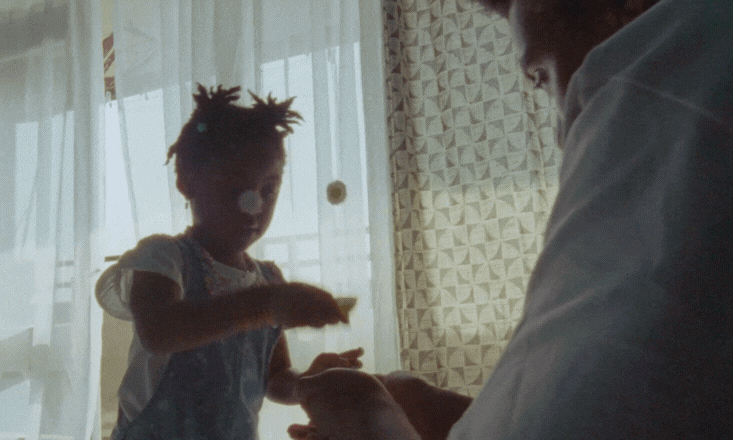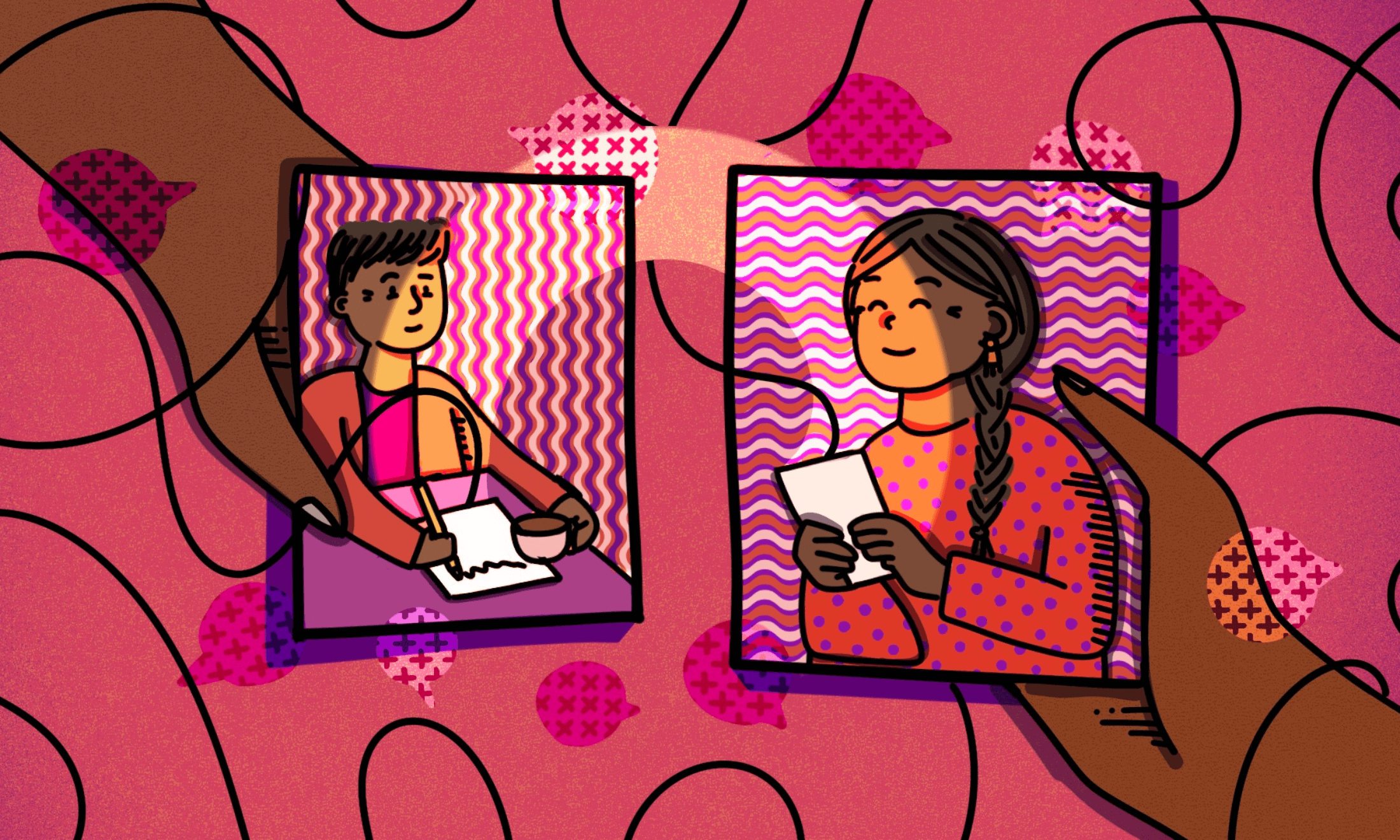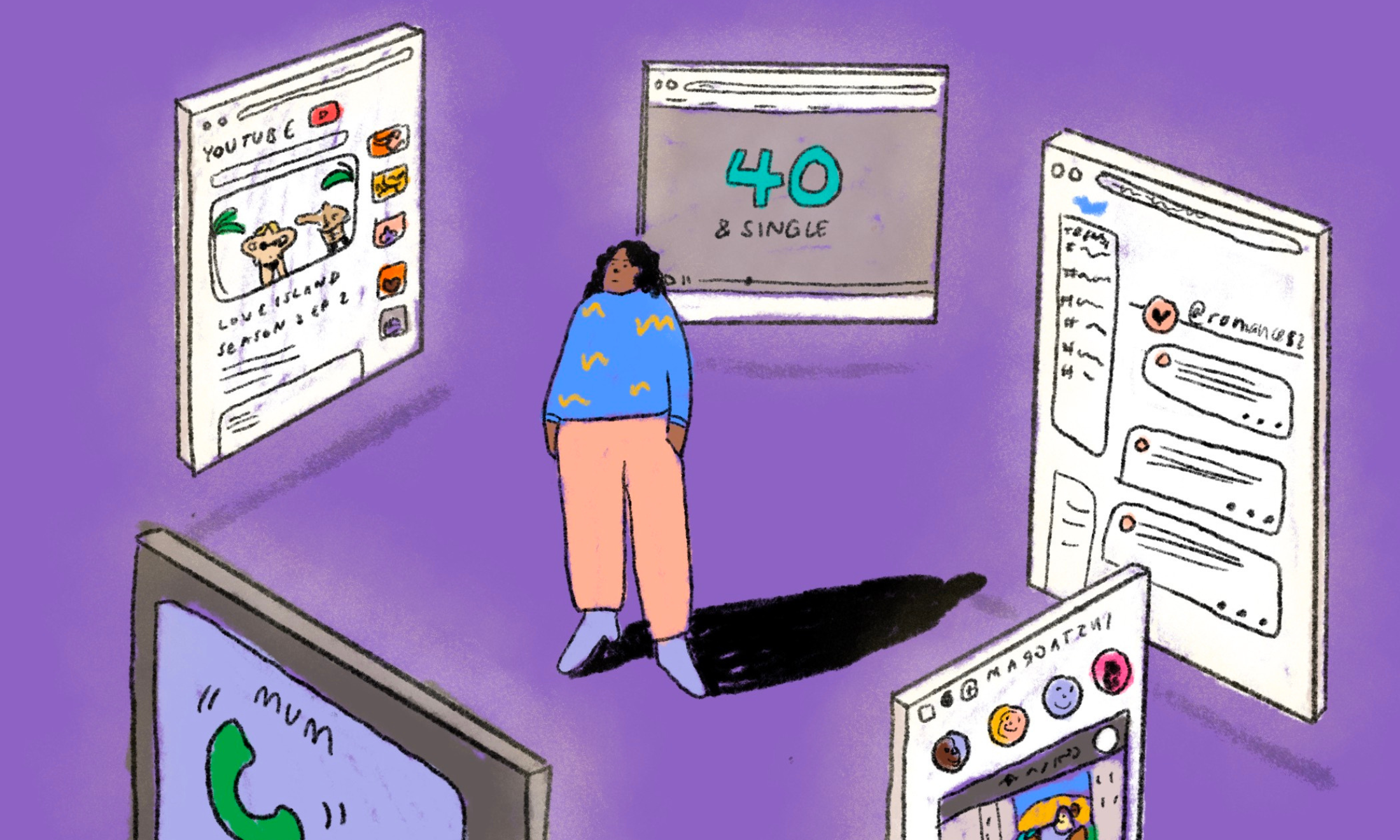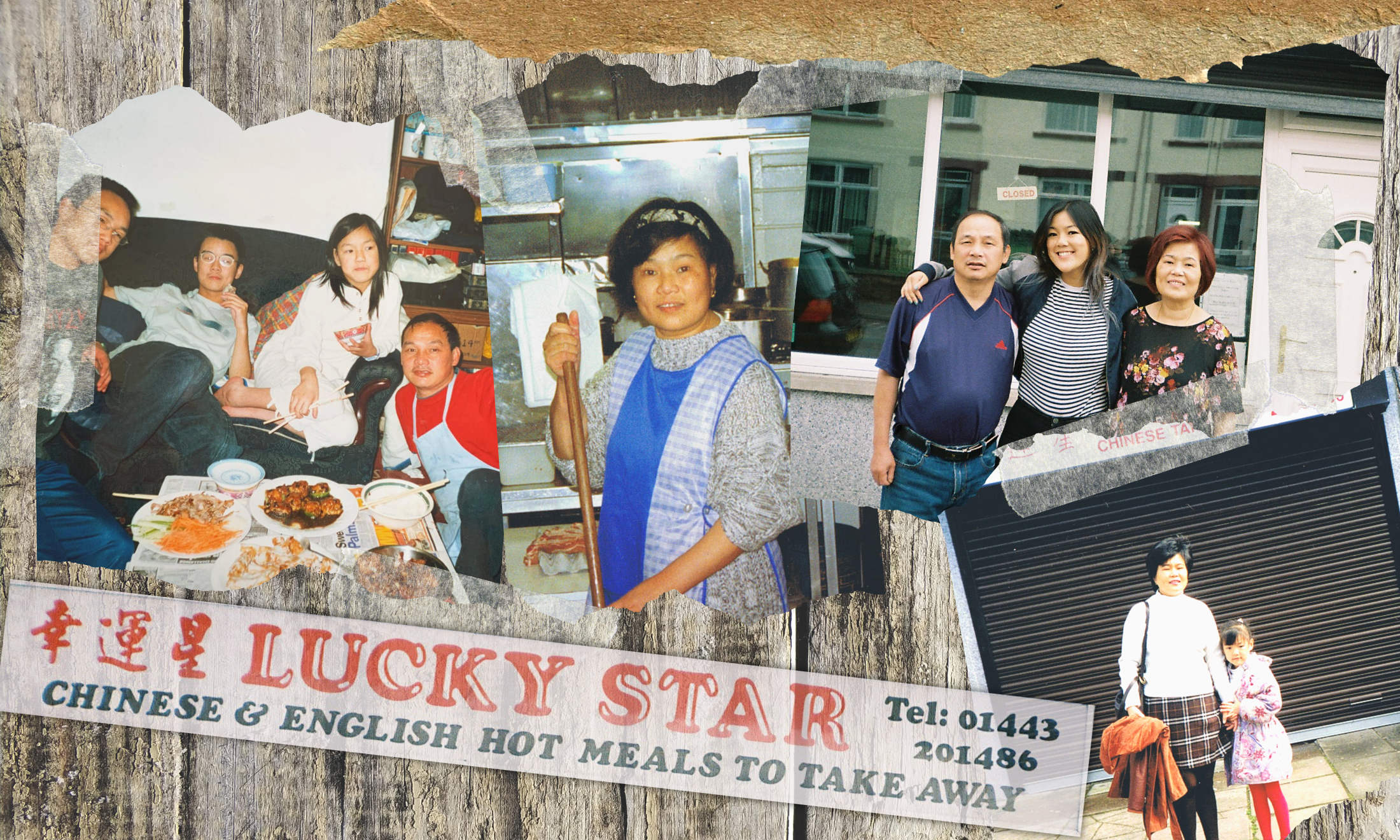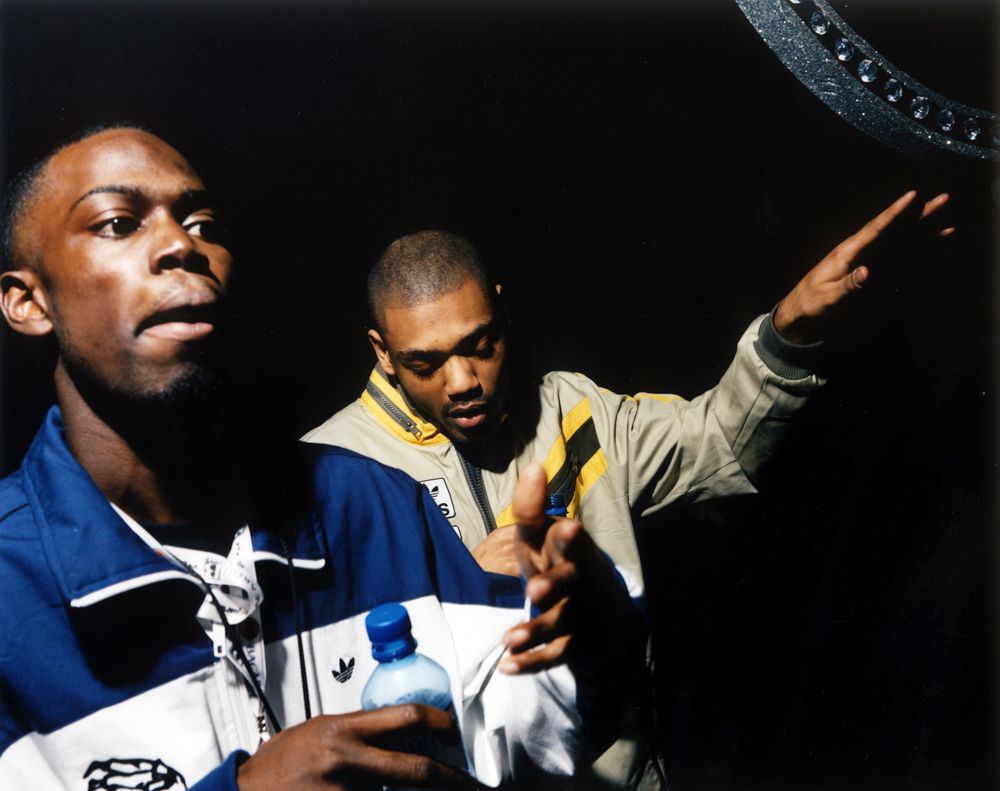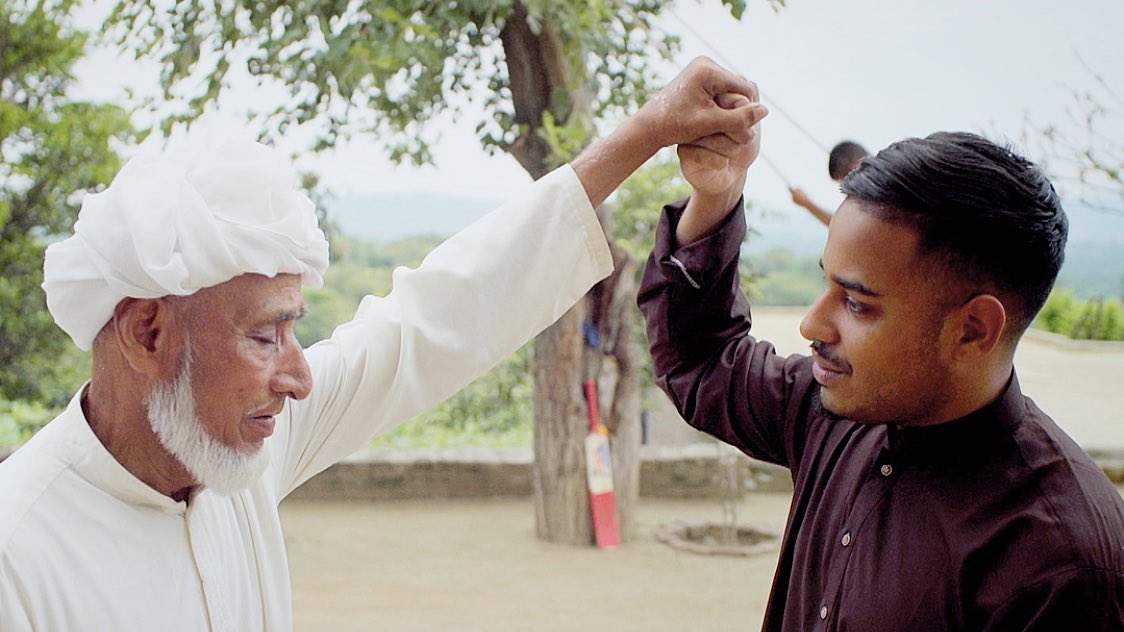
What Mim Shaikh’s ‘Finding Dad’ can teach us about fatherlessness in the Pakistani community
Miriam Walker-Khan
18 Nov 2018
Image via: BBC/Twitter
12.9% of the UK population tuned in to watch BBC Radio 1Xtra DJ Mim Shaikh find his Dad on BBC1 in the documentary, Finding Dad. Mim, also an actor and spoken-word poet, hadn’t seen his father since he was a baby – a whole 26 years of not even knowing what he looked like.
The documentary, which will make you laugh and cry and then cry again, sees Mim go on a journey to find out what happened to his Dad. He eventually ends up meeting three men in Birmingham who knew him, and tell Mim that he now lives in Pakistan.
Fast-forward a few months and Mim is in Pakistan for the first time in his life, on the phone to his Dad, who tells him he doesn’t, in fact, want to meet him. Incredibly, Mim remains calm and seemingly unaffected. The epitome of a brave face.
How? I ask him during our interview.
“I was protecting myself. I was still expecting a no,” he says. “In my mind I’m like, ‘alright, at any time you could go there and something could happen, so don’t get your hopes up too high.'”
“I didn’t get on the plane in a sense of excitement like ‘oh my god I can’t wait, I’m gonna meet my dad for the first time.’ I was trying to refrain from all of that,” he adds. Even with this maturity, coupled with his forgiving outlook on the whole situation, I want to know how the journey has affected Mim moving forward.
“It’s brought me some kind of closure. And peace.”
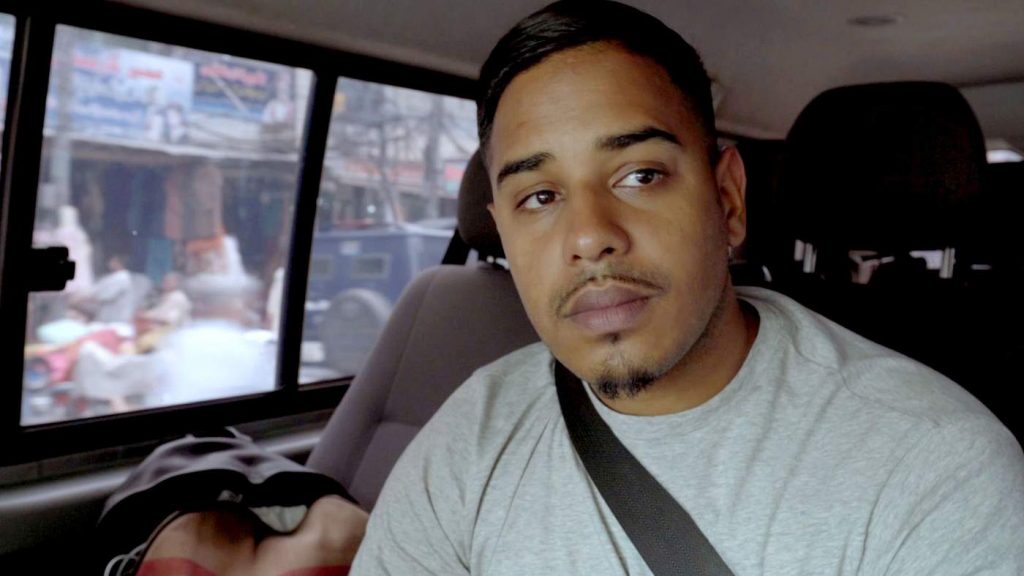
Image via: BBC
“I don’t feel resentment because this man was unknown to me,” he says. “We had no contact – I didn’t even see a picture until January this year. So it was like, you were unknown to me, bro. you were literally no one. You were non-existent even in my brain. It was so alien that there was no resentment.”
“Before, someone would be like ‘Mim, what’s your Dad like?’ and I’d be like ‘I dunno, I don’t know him.’ And now it’s like ‘WELL, I made this documentary…’ and I know so much about the issue know and I have so much to say.”
“That’s made me way more content than ever before. I don’t like not knowing answers to things. Especially if they’re to do with your own life and you don’t know the answers, then how can you carry on moving forward?”
Committing to making a documentary about meeting your father for the first time, let alone being interviewed throughout the entire process, is a brave thing for anyone to do. But throw into the mix the fact that you also happen to be a young Pakistani Muslim man in the UK, and daring to talk about fatherlessness in in the first place becomes even more admirable.
Mim speaks so openly and confidently about his own experience throughout the documentary that it’s easy to take for granted how difficult the topic is to approach.
“I wouldn’t be the person I am today if my grandmother hadn’t raised me”
“I still feel that same testament that I said at the end of that documentary, which was that I wouldn’t be the person I am today if my grandmother hadn’t raised me,” he says.
“If she was not both of my parents, I wouldn’t have the emotional intelligence I have. I wouldn’t have the respect. The things that I’m proud of about myself, I wouldn’t have had. That could have been a lot more different if I was raised by my dad.”
One reason we often don’t talk about fatherlessness in the Pakistani community is because it’s so rare. Broken homes and divorced parents are far less common, which is generally a cultural phenomenon. In my own experience, my white and black friends understand that some marriages are unhealthy and can have long-term, negative effects on children. It’s largely accepted that, sometimes, it’s the best option for everyone that parents should separate or divorce.
On the other hand, I have Pakistani friends who know their parents should divorce, who have been massively affected by toxicity of their relationship and are often left unhappy and anxious because of it.
But they’ll still argue that they should never get divorced for “cultural reasons”. One friend tells me: “It would just look too bad to the rest of the community. Unless it’s really, really abusive, it’s not worth it.”
I clocked that apart from myself (and I’m mixed-race British-Pakistani), Mim was literally the first Pakistani I had ever met who, refreshingly, believes his life has turned out better because he wasn’t raised by his father.
“I could have been limited to a lot of things. I wouldn’t be free in my career to do whatever I want; I think it would have been restrictive, which is a problem in loads of Asian households because of a lack of understanding,” he tells me.
He adds: “Knowing who the person is and what he’s like… maybe it was the best thing that I wasn’t raised by [him] and I was actually raised by someone who was a little bit wiser and older in her years.”
I ask if it’s okay for us not to view biological fathers as “Dads”.
“There’s a lot of connotations that come with the word ‘Dad.’”
“To me, a Dad is someone who provides, is understanding, who supports… Because that hasn’t happened, I don’t think I’d describe him as my Dad. Biologically, he’s my father.
“But a Dad is something else. My grandmother was more of a Dad to me and more of a Mum to me than my Dad was.”
“One reason we often don’t talk about fatherlessness in the Pakistani community is because it’s so rare”
Again, broaching the topic of fatherlessness within the Pakistani community is a rare occurrence, and when it is done, it’s not easy. I literally find myself envious of how confidently Mim speaks about it. Why can’t we all express ourselves like this, no matter how well we can openly discuss other parts of our background? Or why, more importantly, are we told that we are disrespectful for wanting to have these conversations?
The Pakistani side of my family put far more emphasis on the importance of respecting elders and for me, particularly, respecting my father. This is despite the fact that I wasn’t raised by him. He left six young kids in the UK to go and live in Virginia with a woman he met on the internet.
I’ve felt completely ostracised by family in the past for saying that my biological father doesn’t feel like my actual “Dad” – something that surely, only I can decide for myself, and not the people who haven’t lived that experience? I even dared to explain that my late stepfather (who did raise me) was my real “Dad”, as opposed to the man who only donned the title in a biological sense.
And shit, despite my stepdad not even being alive anymore, it’s safe to say my opinion didn’t go down well. I was hit with some mad keyboard warfare: “THAT MAN WILL NEVER BE YOUR DAD.”
Unsurprisingly, I’ve not brought it up since. But when I’ve spoken to my “Dad” about it, it’s only been met with an understanding that has actually made our relationship more positive. Mim’s experience echoes this.
“I think there’s this duty, this thing in society that has been created, that’s like, you’re not allowed to disrespect your parents or badmouth them. Not everything needs to be agreed on. The way you can move forward is by having dialogue and conversations about why you feel like that.”
“But also, if that person doesn’t have a high emotional intelligence and understanding, then how can somebody do that?
“You should still respect them hugely – they brought you into this world and they’re your parents. But if you have different philosophies, different ideals and different ways of conducting yourself, then it’s alright to have a disagreement.”

